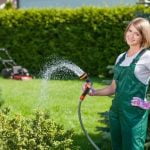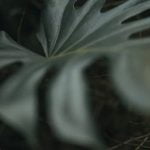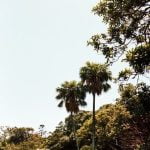Are you looking for creative and practical fish pond ideas for small gardens? Whether you have limited outdoor space or simply want to add a beautiful and tranquil feature to your garden, a small fish pond can be the perfect solution.
In this article, we will explore various design, layout, and maintenance tips to help you bring your small garden fish pond to life. From choosing the right location to incorporating plants and decor, we’ll cover everything you need to know to create a stunning water feature in your compact outdoor space.
Having a fish pond in a small garden can not only add visual interest and natural beauty but also provide numerous benefits. Not only does it attract wildlife, but it also brings a sense of tranquility and relaxation to your outdoor environment.
Furthermore, maintaining a small garden fish pond can be easier and less time-consuming compared to larger ponds. With the right ideas and strategies, you can create a thriving aquatic habitat that enhances the overall appeal of your garden.
When it comes to creating a fish pond in a small garden, choosing the right location is crucial. The placement of your pond can impact its overall success and the well-being of your aquatic life.
In the following sections, we will discuss how to select the perfect spot for your fish pond as well as the types of fish that are suitable for smaller water features. Whether you’re interested in building a DIY pond or simply adding some new plants and decor, there are plenty of options for bringing your vision to life within limited outdoor space.
Benefits of Having a Fish Pond in a Small Garden
Having a fish pond in a small garden can bring a multitude of benefits to homeowners. Not only does it add aesthetic appeal and tranquility to the outdoor space, but it also provides environmental advantages as well.
One of the main benefits of having a fish pond in a small garden is the opportunity to create a balanced ecosystem within your own backyard. The presence of aquatic life, such as fish and plants, can help to regulate the water and create a healthier environment for other plants and wildlife in the area.
In addition to the environmental benefits, having a fish pond in your small garden can also provide therapeutic effects. Studies have shown that being near water can have a calming effect on individuals, reducing stress and anxiety. The presence of colorful fish swimming gracefully in the pond can offer relaxation and enjoyment for both adults and children alike.
Furthermore, having a fish pond in a small garden can also be educational, especially for families with young children. It provides an opportunity for kids to learn about aquatic life, eco-systems, and the importance of environmental conservation. This hands-on experience with nature can be valuable in teaching them about responsibility, empathy towards animals, and the significance of preserving natural habitats.
| Benefits | Details |
|---|---|
| Balanced Ecosystem | The presence of aquatic life helps regulate water and creates a healthier environment. |
| Therapeutic Effects | Being near water has been shown to reduce stress and anxiety. |
| Educational Opportunity | Fish ponds provide an opportunity for kids to learn about aquatic life and eco-systems. |
Choosing the Right Location for Your Fish Pond
When it comes to choosing the right location for your fish pond in a small garden, there are a few important factors to consider. The placement of your pond can have a significant impact on its overall health and the well-being of the fish that will call it home. Here are some key considerations to keep in mind:
- Sunlight: It’s essential to place your fish pond in an area that receives adequate sunlight, but not too much direct sunlight. Too much sun exposure can lead to algae overgrowth and water temperature issues, while too little sunlight can affect the health of aquatic plants and the overall ecosystem of the pond.
- Proximity to Trees: While trees can provide shade and aesthetic appeal to your small garden, they can also pose a risk to your fish pond. Falling leaves can add excess nutrients to the water, leading to algae blooms, and tree roots can potentially damage pond liners.
- Accessibility: Consider placing your fish pond in an area that is easily accessible for maintenance tasks such as cleaning, feeding the fish, and adding new plants or decor. You’ll want to be able to reach all sides of the pond without difficulty.
- Landscaping: Take into account how the fish pond will fit into the overall landscape design of your small garden. Consider how it will complement existing plants, flowers, and other features.
By carefully considering these factors, you can ensure that you choose the perfect location for your fish pond that will promote a healthy and thriving aquatic environment for your fish while enhancing the beauty of your small garden.
Types of Fish Suitable for Small Garden Ponds
When creating a fish pond for your small garden, it’s important to consider the types of fish that are suitable for such a confined space. Not all fish thrive in small ponds, so it’s crucial to select species that can adapt well to limited space and resources. Here are some popular choices for fish pond ideas for small gardens:
- Goldfish: Goldfish are a popular choice for small garden ponds due to their hardiness and ability to thrive in various water conditions. With their vibrant colors and interesting patterns, goldfish can serve as beautiful additions to your outdoor space.
- Rosy Red Minnows: These small, peaceful fish are perfect for small garden ponds. They are easy to care for and add movement and life to the water feature. Their red-orange coloring can also provide visual interest.
- White Cloud Mountain Minnows: These tiny, colorful fish are an excellent option for small garden ponds. They are peaceful, easy to care for, and enjoy swimming in groups, adding dynamic movement to the pond.
It’s important to research each species thoroughly and ensure that they will be compatible with the size and conditions of your small garden pond. Proper consideration of the needs and characteristics of the fish is essential for maintaining a healthy and thriving aquatic environment.
Design and Layout Ideas for Small Garden Fish Ponds
When it comes to designing and laying out a fish pond in a small garden, there are several key factors to consider. One of the most important aspects is the size and shape of the pond. For small gardens, a compact and simple design is often the best choice. Consider incorporating curved edges or irregular shapes to maximize space while still creating an attractive feature.
In addition to size and shape, the depth of the pond is another crucial consideration. Shallow ponds are ideal for small gardens as they require less digging and allow for easier maintenance. A depth of around 18-24 inches is sufficient for most fish while still providing enough space for aquatic plants.
Furthermore, when designing your fish pond, it’s essential to think about the overall aesthetic and function of the space. Consider adding features such as waterfalls or fountains to create a tranquil atmosphere and provide additional oxygenation for your fish. Additionally, incorporating rocks, pebbles, and other natural elements can help blend the pond seamlessly into its surroundings.
Lastly, consider the location of your fish pond within your garden. Placing it in a spot that receives partial sunlight will encourage healthy plant growth while minimizing algae bloom. It’s also important to ensure that there are no overhanging trees or shrubs that could drop debris into the pond, potentially causing water quality issues. By carefully considering these design and layout ideas, you can create a beautiful and functional fish pond in even the smallest of gardens.
Maintenance Tips for Small Garden Fish Ponds
Maintaining a fish pond in a small garden requires some effort, but the rewards of a beautiful and serene water feature make it all worth it. Here are some maintenance tips to help keep your small garden fish pond in top condition.
First, it’s important to regularly check the water quality in your fish pond. This can be done using test kits that are readily available at garden centers or pet stores. Keeping an eye on the pH levels, ammonia, nitrate, and nitrite levels will ensure that the water is safe and healthy for your fish.
In addition to water quality, regular cleaning of the fish pond is essential. Remove any debris such as leaves, twigs, or algae from the surface of the water. Use a small net or skimmer to keep the water clear and prevent any blockages in the filtration system.
Finally, don’t forget about the pump and filter in your fish pond. These components need to be checked regularly to ensure they are functioning properly. Clean the filter as needed and inspect the pump for any signs of wear or damage.
| Maintenance Tips | Details |
|---|---|
| Water Quality Checking | Regularly check pH levels, ammonia, nitrate, and nitrite levels |
| Cleaning | Remove debris from the surface of the water using a net or skimmer |
| Pump and Filter Maintenance | Regularly clean the filter and inspect the pump for any signs of damage |
Incorporating Plants and Decor Into Your Fish Pond
When it comes to creating a serene and natural environment for your fish pond in a small garden, incorporating plants and decor is essential. Not only do plants and decor add visual interest to your pond, but they also provide important benefits for the health of your fish and the overall ecosystem of your pond.
Plant Selection
Choosing the right plants for your small garden fish pond is crucial. Aquatic plants such as water lilies, lotus, and duckweed not only provide shade and protection for your fish, but they also help oxygenate the water and prevent algae growth. Additionally, floating plants like water hyacinth can help filter out excess nutrients from the water, keeping it clean and clear.
Decorative Elements
Incorporating decorative elements into your fish pond adds a personal touch and enhances the aesthetic appeal of your small garden. Decor such as rocks, driftwood, or even a small fountain can create a natural look and feel to your pond. These elements not only provide hiding places for fish but also contribute to creating a more naturalistic habitat.
Fish-Friendly Plants
When choosing plants for your fish pond, it’s important to consider those that are safe for your fish. Some aquatic plants may be toxic to certain types of fish or may interfere with their habitat. Researching fish-friendly plants is essential when designing your small garden fish pond to ensure the safety and well-being of your aquatic pets.
By carefully selecting the right combination of plants and decor for your small garden fish pond, you can create an oasis that is both visually stunning and beneficial for the health of your fish. Incorporating these elements will not only enhance the beauty of your outdoor space but will also create a thriving ecosystem for your aquatic friends.
DIY Fish Pond Ideas for Small Gardens
Creating your own fish pond in a small garden can be an exciting and rewarding project. Not only does it add beauty and tranquility to your outdoor space, but it also provides a habitat for fish and other aquatic life. In this section, we will explore some DIY fish pond ideas that are perfect for small gardens.
Container Pond
One of the easiest ways to create a fish pond in a small garden is by using a container, such as a whiskey barrel or large ceramic pot. Simply choose a watertight container, add water, and then introduce suitable aquatic plants and small fish. This type of DIY fish pond is not only space-saving but also adds an aesthetic appeal to your garden.
Rock Garden Pond
For a natural-looking fish pond in a small garden, consider creating a rock garden pond. Use a flexible liner to create the shape of the pond and then surround it with rocks and stones. This DIY project allows you to customize the size and layout of your pond, making it ideal for smaller outdoor spaces.
Miniature Waterfall Pond
If you have limited space but still want to incorporate a waterfall feature into your small garden fish pond, consider building a miniature waterfall pond. Using rocks, stones, and a small pump, you can create a delightful focal point for your outdoor area while providing oxygenation for your aquatic life.
By exploring these DIY fish pond ideas for small gardens, you can bring the serenity and beauty of an aquatic environment right into your own backyard. Experiment with different designs and layouts to find the perfect fit for your outdoor space while enjoying the benefits of having a thriving ecosystem at home.
Conclusion
In conclusion, a fish pond can add a serene and beautiful focal point to any small garden. By incorporating the right location, suitable fish species, and thoughtful design elements, you can bring your small garden fish pond to life. The benefits of having a fish pond in your small garden are numerous, from providing a calming atmosphere to attracting wildlife and adding visual interest.
When considering fish pond ideas for small gardens, it’s essential to choose the right location for your pond. Ensure that it receives adequate sunlight and is away from overhanging trees to prevent debris from falling into the water. Additionally, consider the types of fish that are suitable for small garden ponds, such as goldfish or koi, which can thrive in limited space.
To truly bring your small garden fish pond to life, incorporating plants and decor is essential. Consider adding water lilies or other aquatic plants to provide natural filtration and enhance the aesthetic appeal of your pond.
Adding decorative elements like rocks or statues can also add character to your pond and make it feel like a natural part of your garden landscape. With the right maintenance tips and DIY ideas, you can create a stunning and tranquil fish pond in even the smallest of gardens.
Frequently Asked Questions
What Is the Best Fish for a Small Garden Pond?
The best fish for a small garden pond are typically species like goldfish, minnows, or guppies. These types of fish are well-suited for smaller environments and can thrive in the limited space provided by a garden pond.
How Deep Should a Small Pond Be for Fish?
A small pond should ideally be at least 18 to 24 inches deep for fish. This depth helps provide enough space for the fish to thrive while also allowing them to escape extreme temperature variations and predators.
How Do You Start a Mini Fish Pond?
To start a mini fish pond, you first need to choose an appropriate location with adequate sunlight and access to water. Then, you’ll need to dig the pond, install a liner, add water and dechlorinator, and finally introduce your chosen fish species once the pond has cycled properly.

Welcome to my gardening blog! I am passionate about plants and enjoy sharing my knowledge and experiences with others. In this blog, I will write about everything related to gardening, from tips on how to get started to updates on my own garden projects.





